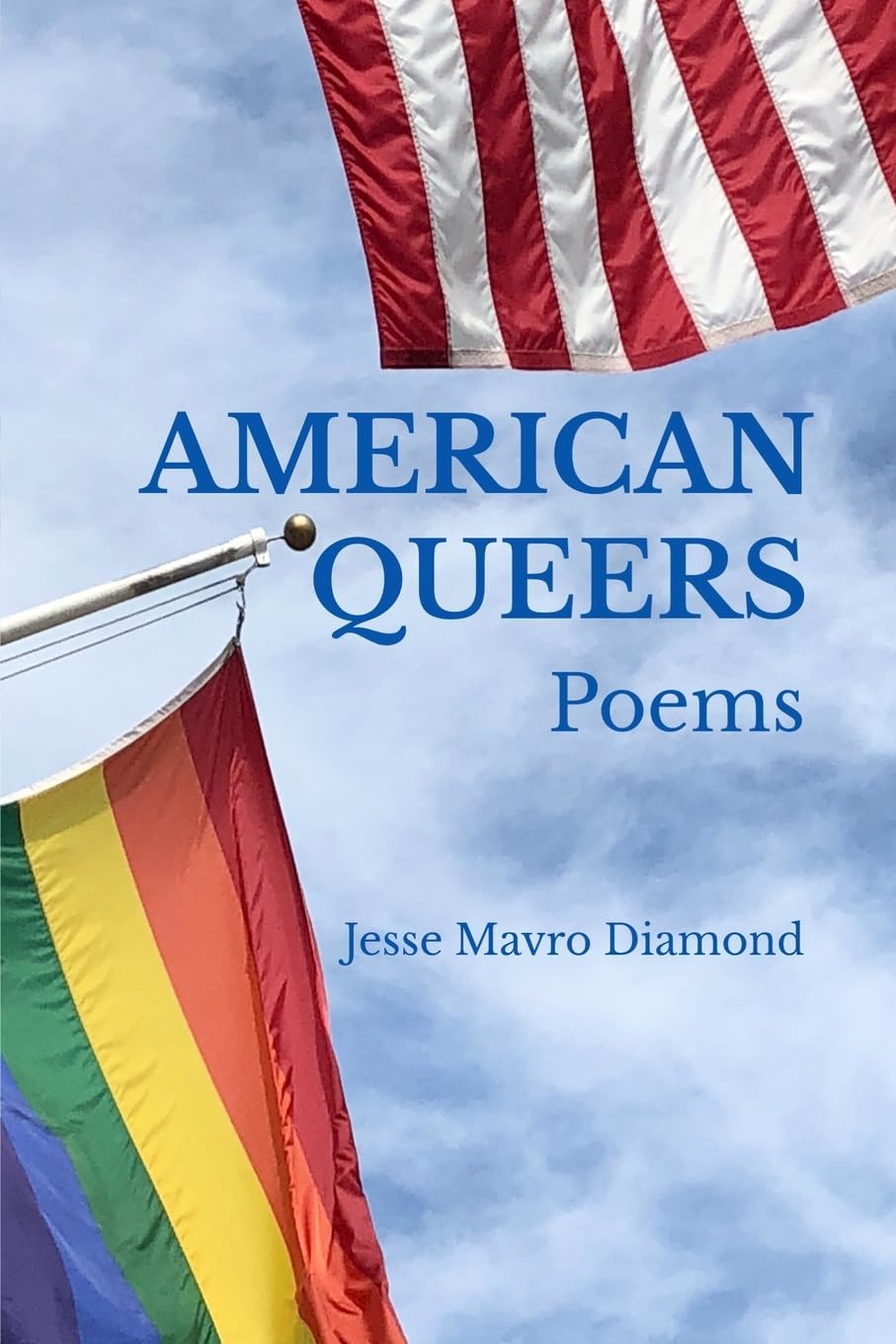Review of American Queers: Poems by Jesse Marvo Diamond

American Queers: Poems
Jesse Marvo Diamond
Červená Barva Press, 2023, 54 pages
$18.00
Reviewed by Courtney Heidorn
In American Queers, Jesse Mavro Diamond creates a guiltless queer kingdom of historiography and reclamation. The Charley Shively epigraph—“Our guilt ruins our pleasure”—sets the tone for a mythical adventure through queer resistance and liberation, honoring those who came before and those who will tread new waters in the future. Stormé DeLarverie, Richard Leitsch, Pat Parker, and Charley Shively are those who have come before, and with impressively researched biographical notes on each artist, readers of American Queers will surely step in stride with the story of these mid-century gay activists.
Prior knowledge of these historical figures is not necessary to enjoy these celebratory and elegiac poems of American queer liberation. Mavro Diamond expresses that her goal is to let readers “once again hear the beating of [the] full, red American hearts” of late queer leaders. She wishes to “infuse” her verse with the “rhythm” of the activists’ spirit. In this way, American Queers functions as a time capsule of queer reverence and tradition.
The poems in American Queers are historiographical in the sense that they track the lineage of the figures she models. In “The Night King Storm’s Lineage Was Proven,” Marvo Diamond recounts DeLarverie’s journey from birth to her involvement in the Stonewall Riots: “At 15 she started hitting back. / That’s how champions are born…Fast forward thirty-three years…when the NY cops went to gather gays / like cattle into the vans” (5). The poem is short and brief, but the lines convey clear and powerful storytelling. Marvo Diamond truly captures the spirit of DeLarverie’s energetic rebellion from birth to adulthood.
The very nature of American Queers implies a certain level of reclamation—reclamation of personhood, identity, and history. However, the section titled “Those Who Came After” is specifically geared toward this theme: “We The People: 1973,” which displays this most effectively. The poem, written as a “queer constitution” of sorts, reclaims what it means to be an American in a country where queerphobia is rampant. Mavro Diamond writes, “Courage is our undoing, they will be sure of that,” and “They cannot deny us our desire / Which is our hunger. / They cannot deny us our love / Which is our bread” (48-49). Here, Mavro Diamond defines American queerness as resistance and the fight for love.
I could not end this review without mentioning my favorite poem, titled “Lines,” from the “Muse: Pat Parker” section. This poem exceeded my expectations of what poems with borrowed lines can look like and accomplish. The piece blends Parker’s words and Marvo Diamond’s beautifully, creating a mosaic of queer experience that transcends time (23-27).
A diverse set of readers will enjoy American Queers. Those who lived through the mid-century gay rights movement will be transported back into the joys and hardships of twentieth-century queerness. For younger readers who often view their queer experience as starkly different from the lived experience of our late leaders, Mavro Diamond reignites this queer history. She speaks through the legacies of DeLarverie, Leitsch, Parker, and Shively, literally writing into their tradition and offering their influence to our modern minds.
Courtney Heidorn (she/they) is a Sinister Wisdom intern. She holds a BA in English and Creative Writing from Azusa Pacific University. You can see more of their work in CURIOUS Magazine and at Pearl Press.
"Empowerment comes from ideas."
― Charlene Carruthers
"Your silence will not protect you."
— Tourmaline
"Gender is the poetry each of us makes out of the language we are taught."
— Leila Raven


